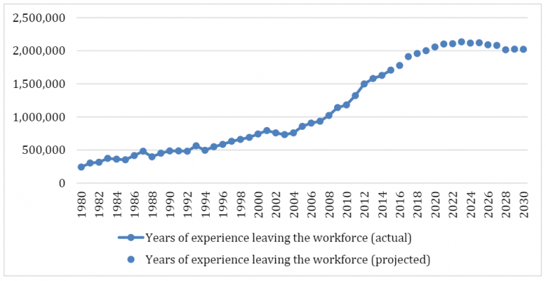A fulfilling Nursing career is often characterized by a combination of personal satisfaction, professional growth, and a positive impact on patients and the healthcare system. It is a profession that requires dedication, empathy, and a genuine passion for patient care. Nurses who find joy in helping patients, improving their health, and providing emotional support tend to be more satisfied in their roles.
Here are some key elements that can contribute to a fulfilling Nursing career:
Passion for Patient Care: A genuine passion for caring for others is at the core of a fulfilling Nursing career. This passion drives Nurses to go above and beyond their duties, ensuring that each patient receives personalized and compassionate care. It is this dedication and genuine concern for the well-being of patients that sets exceptional Nurses apart. Whether it's comforting a frightened patient, advocating for their needs, or simply lending a listening ear, Nurses with a true passion for patient care create a nurturing environment that promotes healing and instills trust. Their unwavering commitment to making a positive impact on patients' lives not only brings fulfillment to their own careers but also enhances the overall quality of healthcare delivery. With every interaction, these passionate Nurses strive to make a difference and leave a lasting impression on the lives of those they care for.
Continuous Learning and Professional Development: As the field of healthcare continues to evolve, it is crucial for Nurses to stay up-to-date with the latest medical advancements and continuously seek opportunities for growth and learning. By doing so, Nurses not only enhance their knowledge and skills but also find greater satisfaction in their careers.
One way Nurses can engage in continuous learning is by pursuing advanced degrees or certifications. These educational opportunities allow Nurses to deepen their understanding of specific areas and can open doors to new career paths and opportunities. Whether it's obtaining a master's degree in a specialized field like Gerontology or pursuing a certification in a specific area of practice, further education can provide Nurses with the knowledge and expertise needed to excel in their roles.
Moreover, continuous learning fosters a sense of professional growth and personal fulfillment. It allows Nurses to challenge themselves, expand their horizons, and push the boundaries of their capabilities. By constantly seeking new knowledge and skills, Nurses can feel a sense of accomplishment and pride in their work. They can also experience increased job satisfaction as they witness the positive impact their continuous learning has on patient care.
Variety of Career Paths: Nursing offers a wide range of career paths, from bedside Nursing to research, education, administration, specialized roles, and even entrepreneurship. The beauty of Nursing is that it provides diverse opportunities to explore and find their true calling within the field.
Finding a niche that aligns with their interests and skills can make a Nursing career more rewarding. It allows Nurses to find fulfillment in their work while making a meaningful impact in the healthcare field. Whether they choose a traditional career path or venture into less conventional roles, the possibilities within Nursing are vast and exciting.
Strong Support System: A supportive work environment and colleagues can significantly impact job satisfaction. Collaborative teams and mentors can help Nurses navigate challenges, promote a sense of belonging, and foster professional growth.
In a supportive work environment, Nurses have the opportunity to collaborate with their colleagues and form strong, cohesive teams. This teamwork not only improves patient care but also creates a sense of camaraderie and support. When Nurses feel supported by their colleagues, they are more likely to feel valued and appreciated, leading to increased job satisfaction.
Mentors also play a crucial role in career development. Having a mentor who can provide guidance, advice, and support can be invaluable. Mentors can help navigate the challenges Nurses face in their roles, offer encouragement during difficult times, and provide insights and knowledge based on their own experiences. By having a Mentor, Nurses can develop professionally and gain the confidence they need to excel in their careers.
Additionally, a strong support system can contribute to a Nurse's overall well-being. Nursing can be a demanding and emotionally taxing profession, and having colleagues and mentors who understand and empathize with the challenges Nurses face can be incredibly beneficial. They can provide a listening ear, offer emotional support, and help Nurses manage stress and prevent burnout. Nurses who feel supported in their work environment are more likely to experience a healthy work-life balance and overall job satisfaction.
Work-Life Balance: Achieving a healthy work-life balance is crucial for long-term career satisfaction. Nursing can be demanding, but it's essential to prioritize self-care and manage stress to prevent burnout.
Finding time for self-care and relaxation is necessary in preventing burnout and maintaining a sense of fulfillment. Nurses should prioritize activities that promote physical and mental well-being, such as exercise, meditation, and hobbies. Taking regular breaks and time off is also vital to recharge and replenish energy levels. By consciously making time for themselves, Nurses can prevent exhaustion and maintain their passion and enthusiasm for patient care.
A Sense of Purpose: Many Nurses find fulfillment in knowing that their work makes a meaningful difference in patients' lives. Connecting with patients and seeing improvements in their health can provide a profound sense of purpose. This sense of purpose goes beyond the everyday tasks of Nursing and transcends into the realm of making a lasting impact on someone's life.
Nurses who find purpose in their work often feel a deep sense of satisfaction and fulfillment, knowing that they are instrumental in helping patients overcome health challenges and improve their overall well-being. Whether it's witnessing a patient recover from a serious illness, helping a patient manage chronic pain, or providing emotional support during a difficult time, Nurses understand the significance of their role in the lives of their patients.
They find purpose in being a source of comfort, strength, and support for individuals and their families, knowing that their presence and care can make a meaningful difference. This sense of purpose not only brings personal fulfillment to Nurses but also drives them to strive for excellence in their practice, continuously seeking ways to improve their skills and knowledge, and ultimately making a positive impact on the lives of those they serve.
Advocacy for Patients: Acting as advocates can be personally fulfilling for Nurses, as they witness the positive impact their efforts have on their patients' lives. It allows Nurses to make a difference in the lives of individuals and their families, ensuring that they receive the best possible care and support. Advocacy not only contributes to positive patient outcomes but also enhances the Nurse-patient relationship, fostering trust and collaboration.
Recognition and Appreciation: When Nurses feel valued and appreciated by patients, their families, and the healthcare organization, it not only boosts their job satisfaction but also motivates them to continue providing exceptional care.
One way to recognize Nurses for their hard work and dedication is through regular acknowledgment and praise. Taking the time to acknowledge their efforts, whether through verbal recognition, written notes, or small tokens of appreciation, can make a significant impact on their morale and overall job satisfaction. When Nurses feel seen and appreciated for their contributions, it reinforces their sense of purpose and encourages them to continue going above and beyond for their patients.
In addition to individual recognition, organizations can also implement formal recognition programs to celebrate the achievements and milestones of their Nursing staff. These programs can include awards, ceremonies, or even financial incentives to reward exceptional performance. By publicly recognizing Nurses for their hard work, dedication, and the positive impact they make on patient care, organizations create a culture of appreciation and motivate Nurses to excel in their roles.
Ethical Practice: Maintaining high ethical standards and integrity in Nursing practice can contribute to a sense of pride and fulfillment. Upholding the Nursing code of ethics and making morally sound decisions is essential. It allows them to align their actions and decisions with their values, contributing to a strong professional identity and a sense of personal integrity. Nurses who practice ethically can take pride in knowing that they are upholding the highest standards of their profession and making a positive impact on the lives of their patients.
In addition, ethical practice contributes to a positive work environment and enhances teamwork and collaboration. When Nurses prioritize ethical considerations, they create an atmosphere of trust and respect among their colleagues. This promotes effective communication, shared decision-making, and a culture of safety and accountability.
Leadership Opportunities: Some nurses find fulfillment in leadership roles, where they can influence healthcare policies, drive quality improvement initiatives, or mentor others. These leadership positions allow Nurses to make a broader impact on the healthcare system and drive positive change within their organizations.
These opportunities provide Nurses with the chance to develop and strengthen essential skills, such as communication, problem-solving, and decision-making. These skills are invaluable not only in leadership roles but also in everyday Nursing practice. By honing these skills, Nurses can enhance their effectiveness in patient care and become more influential advocates for their patients and colleagues.
Ultimately, a fulfilling Nursing career is a personal journey that depends on individual values, interests, and goals. It's essential to regularly assess your career and make adjustments to align it with your evolving aspirations so you can maintain long-term satisfaction in the field of Nursing.



 A positive workplace culture is essential for Nurses to provide excellent patient care. In addition, a positive workplace culture on Nursing units can positively impact job satisfaction, staff retention, and patient outcomes.
A positive workplace culture is essential for Nurses to provide excellent patient care. In addition, a positive workplace culture on Nursing units can positively impact job satisfaction, staff retention, and patient outcomes. Congratulations on starting your Nursing career! Here are some pieces of advice that may help you as a new Nurse:
Congratulations on starting your Nursing career! Here are some pieces of advice that may help you as a new Nurse: Patients become difficult for many different reasons. They sometimes become challenging due to diseases that affect their reasoning, like dementia or Alzheimer’s. Other times, patients can become verbally or physically abusive due to high-stress situations or unmet wants or needs. Regardless of why some patients become difficult, Nurses can help handle and diffuse difficult patient interactions with these 5 helpful tips.
Patients become difficult for many different reasons. They sometimes become challenging due to diseases that affect their reasoning, like dementia or Alzheimer’s. Other times, patients can become verbally or physically abusive due to high-stress situations or unmet wants or needs. Regardless of why some patients become difficult, Nurses can help handle and diffuse difficult patient interactions with these 5 helpful tips.  Nursing is a profession that requires compassion as well as expertise, making it both an art and a science. Empathy and compassion are critical characteristics of an excellent Nurse. These qualities help us to connect with patients on an individualized basis and improve patient outcomes.
Nursing is a profession that requires compassion as well as expertise, making it both an art and a science. Empathy and compassion are critical characteristics of an excellent Nurse. These qualities help us to connect with patients on an individualized basis and improve patient outcomes.  Each generation has a nickname –Millenials, Gen X, Baby Boomers, etc. I am a baby boomer and this article is frightening to me. It discusses the tens of thousands of baby boomer Nurses that are starting to retire and will continue to retire over the next few years.
Each generation has a nickname –Millenials, Gen X, Baby Boomers, etc. I am a baby boomer and this article is frightening to me. It discusses the tens of thousands of baby boomer Nurses that are starting to retire and will continue to retire over the next few years.
